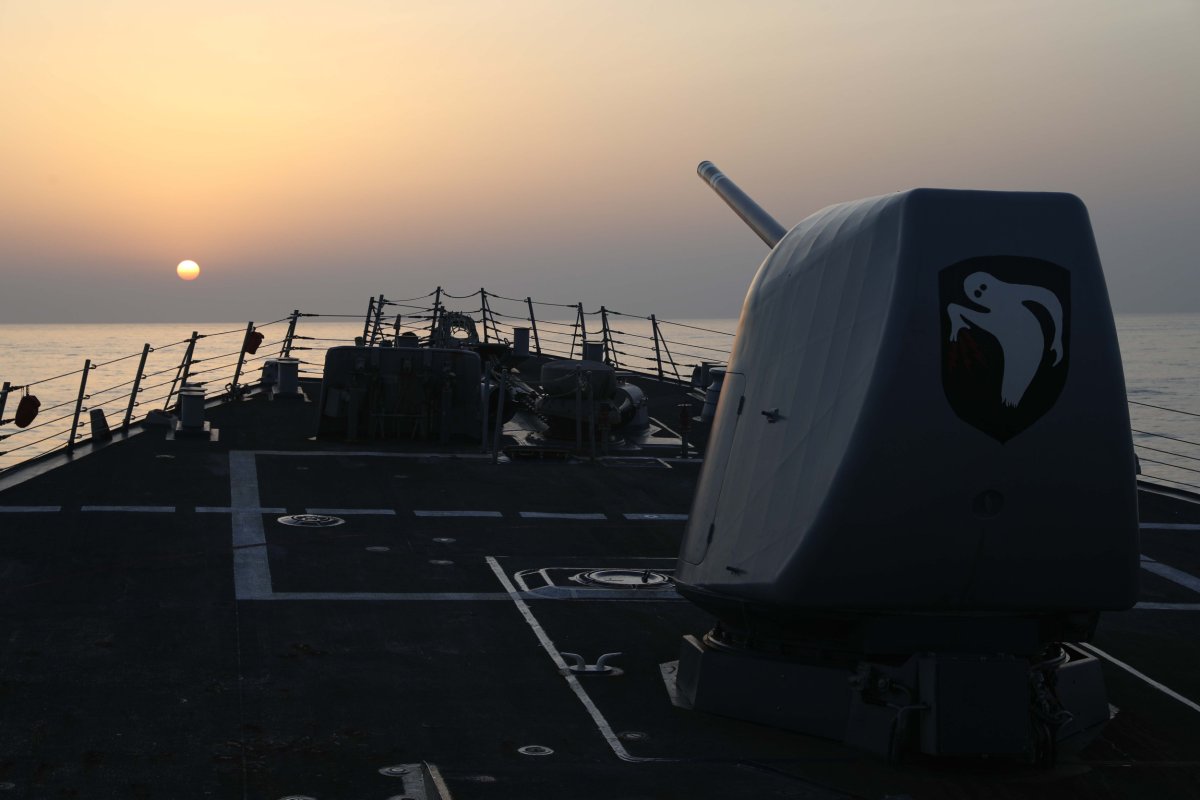The Chinese military on Monday said the United States had "publicly hyped up" an American warship's presence in the Taiwan Strait after the U.S. Navy sent a destroyer through the sensitive waters for only the second time this year.
Col. Shi Yi, spokesperson for the People Liberation Army's Eastern Theater Command, said China's troops were "on high alert at all times to resolutely defend national sovereignty and security, and regional peace and stability." Hours earlier, the Navy's Seventh Fleet said the USS Milius had "conducted a routine Taiwan Strait transit" on April 16.
The U.S. officially doesn't oppose China's decades-long aim of achieving a political union with Taiwan, which today is a democratically governed island whose public has shown little interest in being ruled from Beijing. Washington's own long-standing policy, however, insists cross-strait difference be resolved peacefully, without coercion or the use of force.
The Milius' operation came less than a week after China concluded three-day military drills around Taiwan in response to talks on U.S. soil between House Speaker Kevin McCarthy and the island's president, Tsai Ing-wen. Beijing, which considers Tsai a separatist, frequently accuses America's political leaders of interfering in its internal affairs, while Taipei argues China has no right to dictate the island nation's foreign relations.

Shi, of the PLA, said Chinese forces followed the U.S.'s Arleigh Burke-class guided-missile destroyer throughout its transit. Taiwan's defense ministry said on Monday that the Milius, unaccompanied by other friendly vessels, sailed in a northerly direction out the strait.
Navy ships—and occasionally those of U.S. allies, too—have transited the Taiwan Strait at fairly regular intervals in recent years, including nine times in 2022 and 12 times in 2021. This past January, the destroyer USS Chung-Hoon conducted the first strait transit of the year, before a P-8A maritime patrol aircraft conducted a similar operation in February.
Since last summer, China's military and civilian leaders have questioned the legal right of foreign vessels and aircraft to transit the waterway without the Chinese government's express permission, in what U.S. officials see as an attempt by Beijing to erode international norms.
The Seventh Fleet, which is headquartered in Yokosuka, Japan, said on Sunday that the Milius operated "through waters where high-seas freedoms of navigation and overflight apply in accordance with international law."
"The ship transited through a corridor in the strait that is beyond the territorial sea of any coastal state," the statement added. "The United States military flies, sails and operates anywhere international law allows."
"Fifty percent of every container ship that is moving around the world every day goes through the Taiwan Strait; 70 percent or more of the computer chips manufactured in the world at the higher ends are manufactured on Taiwan," U.S. Secretary of State Antony Blinken said in January in an appearance at the University of Chicago. "If that gets disrupted, the entire world economy will suffer."
In less than a month, the Milius has challenged Beijing's maritime claims three times. In separate freedom of navigation operations, or FONOPs, on March 23 and April 9, the warship rejected excessive Chinese claims in the South China Sea by sailing by the disputed Paracel and Spratly island groups.
They were the Navy's first FONOPs of the year, after five such operations in 2022 and five the year before that.
China's defense ministry and the U.S. Seventh Fleet didn't return separate emails seeking comment before publication.
Do you have a tip on a world news story that Newsweek should be covering? Do you have a question about China or Taiwan? Let us know via worldnews@newsweek.com.
Uncommon Knowledge
Newsweek is committed to challenging conventional wisdom and finding connections in the search for common ground.
Newsweek is committed to challenging conventional wisdom and finding connections in the search for common ground.
About the writer
John Feng is Newsweek's contributing editor for Asia based in Taichung, Taiwan. His focus is on East Asian politics. He ... Read more
To read how Newsweek uses AI as a newsroom tool, Click here.








